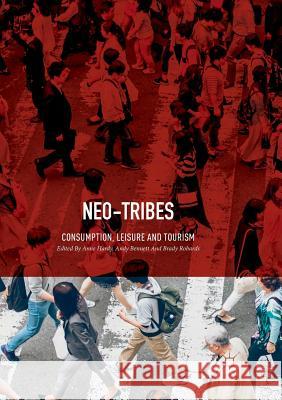Neo-Tribes: Consumption, Leisure and Tourism » książka
topmenu
Neo-Tribes: Consumption, Leisure and Tourism
ISBN-13: 9783030098247 / Angielski / Miękka / 2018 / 259 str.
Kategorie:
Kategorie BISAC:
Wydawca:
Palgrave MacMillan
Język:
Angielski
ISBN-13:
9783030098247
Rok wydania:
2018
Wydanie:
Softcover Repri
Ilość stron:
259
Waga:
0.34 kg
Wymiary:
21.01 x 14.81 x 1.52
Oprawa:
Miękka
Wolumenów:
01
Dodatkowe informacje:
Wydanie ilustrowane











